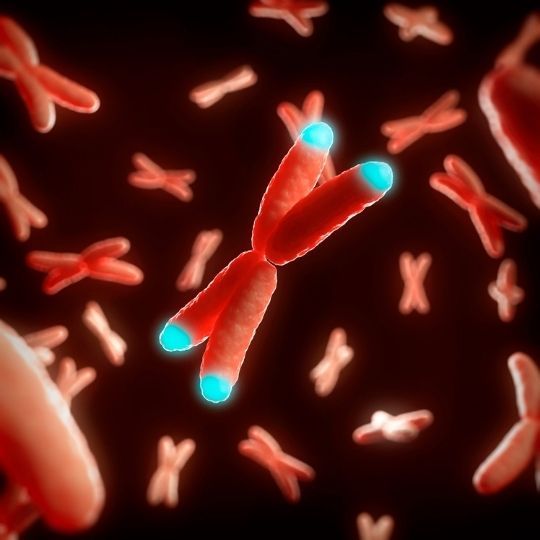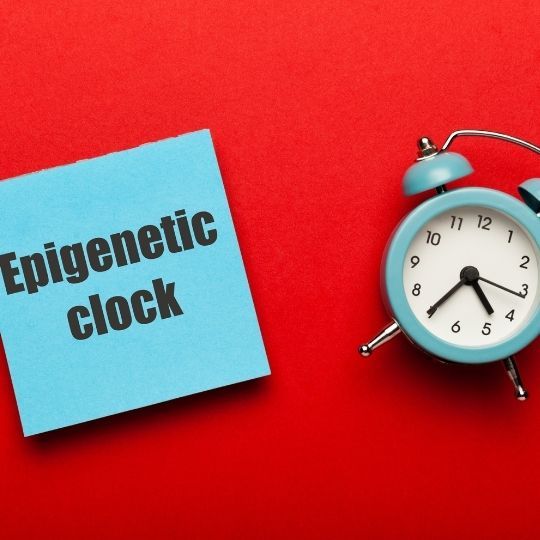Do you know your biological age? Find out how epigenetics and knowing your biological age can help you achieve and longer and happier life.

Epigenetics
Epigenetics - What Are They?
Epigenetics is an emerging field that has potential to give us insight into many underlying health conditions. While there is still much to be uncovered about epigenetics, there is a lot we already do know and can use to our advantage in improving our quality of life and increase longevity.
Here is what we will cover in this article about epigenetics:
- What epigenetics is and how it works
- How epigenetics can be used to treat diseases
- The potential dangers of epigenetic manipulation
- The future of epigenetics research
Let's dive into epigenetics and find out more about this fairly new field and how Regen IV Wellness can help you use epigenetics to improve your quality of life and increase longevity.
What Is Epigenetics And How It Works
Epigenetics is the study of how changes in the environment can cause changes in gene expression. This can include changes in the way DNA is methylated, how histones are acetylated, and what microRNAs are expressed. These changes can be passed down from one generation to the next, meaning that epigenetic effects can accumulate over time.
While epigenetics was once thought to be a relatively rare event, we now know that it is actually quite common. For example, research has shown that exposure to environmental toxins can lead to epigenetic changes that increase the risk of cancer. Similarly, studies have shown that stress can cause epigenetic changes that contribute to mental illness. Epigenetics is a rapidly growing field of research, and it is currently providing us with new insights into the way our genes respond to the environment.
How Epigenetics Can Be Used To Treat Diseases

Epigenetics is the study of inheritable changes in gene function that do not involve changes in the DNA sequence. Epigenetic mechanisms can be used to turn genes on or off and are involved in the development and maintenance of many cell types. Abnormalities in epigenetic mechanisms have been implicated in a variety of human diseases, including cancer, immunodeficiency, and neurological disorders.
Recent advances in epigenetic research have led to the development of several therapeutic strategies that aim to correct aberrant epigenetic states. For example, drugs that target DNA methyltransferases are being evaluated as potential treatments for cancer. In addition, histone deacetylase inhibitors are being investigated as a means to improve cognitive function in patients with Alzheimer’s disease. As our understanding of epigenetic mechanisms continues to grow, it is likely that more targeted therapies will be developed to treat a wide range of diseases.
What is Biological Age Testing?

Biological age testing is a process that uses data from tests such as blood and urine samples, body composition assessments, or genetic information to determine how well your body is functioning on a cellular level. It's an important tool for determining the health of your cells and organs, and can provide valuable insight into which areas may be in need of extra attention.
Biological age testing can help you stay healthy by giving you a look into any underlying health issues you may have that might otherwise be overlooked. It can also help to identify risk factors for certain diseases or illnesses and provide the opportunity for proactive steps to address them before they become a problem. Additionally, biological age testing can provide a more accurate picture of the effect of lifestyle choices on your overall health, such as diet and exercise.
By understanding the results of a biological age test, you can better plan for your future health. It allows you to identify any areas that need to be improved and make changes accordingly in order to stay healthy and increase longevity. Regular testing can also help you to track changes in your body overtime and make informed decisions about how best to look after yourself.
Overall, biological age testing can be a valuable tool for maintaining good health. By understanding the results of a test, you can take proactive steps to address any underlying issues before they become serious problems and ensure that you're making choices that will promote long-term health and well-being.
Do You Know Your Biological Age?

Chronological Age is the number of candles on your birthday cake (without cheating). Meaning it's the exact age you are based on your date of birth.
Biological Age is a measure of how lifestyle, nutrition, illness, and genetics have impacted your body and vital organs. Your Age Score provides insights so you can make changes to improve your overall wellness and longevity.
At Regen IV Wellness, we offer TruAge testing which gives us detailed insight into how well your body is aging. Once we determine your biological age and pinpoint the exact things that are causing YOU to age, we develop a customized health plan to help you address any concerns and reverse the clock on your aging progress.
Once you begin addressing the things specific to you that are causing rapid aging, you can start decreasing your biological age and improve quality of life for you now and in the future.
Schedule your appointment today to find out your biological age with a TruAge test and get your customized anti-aging health plan. By taking action on these known data points and lifestyle changes can improve your quality of life and create longevity.
The Potential Dangers Of Epigenetic Manipulation

Epigenetics is the study of how environmental factors can influence gene expression. Epigenetic manipulation refers to the artificial alteration of these environmental factors in order to change the way a gene is expressed. While epigenetic manipulation holds great promise for treating genetic diseases, it also poses significant risks.
One of the biggest concerns is that epigenetic changes can be inheritable. This means that any alteration made to an individual’s genome could be passed down to their offspring, potentially creating generations of people with unnatural genetic makeup.
Another worry is that epigenetic changes could have unintended consequences. For example, a change that was meant to correct one disease could unintentionally lead to the development of another. As we learn more about epigenetics, it is essential that we tread cautiously, lest we unleash a Pandora’s box of unintended consequences.
The Future Of Epigenetics Research

Epigenetics is an emerging field of research with the potential to revolutionize our understanding of human health and disease. By studying how environmental factors can influence gene expression, epigenetics has the potential to explain why some people are more susceptible to certain diseases than others.
Additionally, epigenetics could potentially be used to develop new treatments for a variety of conditions, including cancer and mental illness. As research in this area continues to grow, it is likely that we will gain a greater understanding of the role epigenetics plays in human health and disease. With this knowledge, we will be better equipped to develop effective treatments and prevention strategies for a wide range of conditions.
Epigenetics is an emerging field with a lot of potential. With further research, it may be possible to use epigenetics to treat diseases and improve overall health. However, there are also potential risks associated with epigenetic manipulation, so this area of research should be closely monitored in the future.
